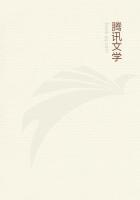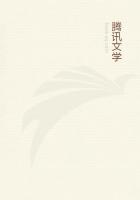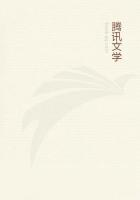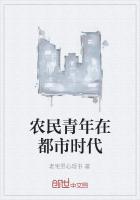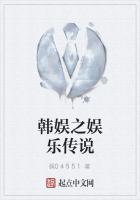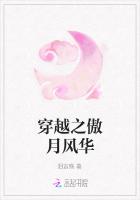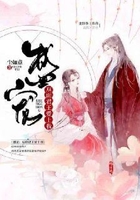The artist is indeed the child of his own age, but the present will not be to him a whit more real than the past; for, like the philosopher of the Platonic vision, the poet is the spectator of all time and of all existence. For him no form is obsolete, no subject out of date; rather, whatever of life and passion the world has known, in desert of Judaea or in Arcadian valley, by the rivers of Troy or the rivers of Damascus, in the crowded and hideous streets of a modern city or by the pleasant ways of Camelot - all lies before him like an open scroll, all is still instinct with beautiful life. He will take of it what is salutary for his own spirit, no more; choosing some facts and rejecting others with the calm artistic control of one who is in possession of the secret of beauty.
There is indeed a poetical attitude to be adopted towards all things, but all things are not fit subjects for poetry. Into the secure and sacred house of Beauty the true artist will admit nothing that is harsh or disturbing, nothing that gives pain, nothing that is debatable, nothing about which men argue. He can steep himself, if he wishes, in the discussion of all the social problems of his day, poor-laws and local taxation, free trade and bimetallic currency, and the like; but when he writes on these subjects it will be, as Milton nobly expressed it, with his left hand, in prose and not in verse, in a pamphlet and not in a lyric.
This exquisite spirit of artistic choice was not in Byron:
Wordsworth had it not. In the work of both these men there is much that we have to reject, much that does not give us that sense of calm and perfect repose which should be the effect of all fine, imaginative work. But in Keats it seemed to have been incarnate, and in his lovely ODE ON A GRECIAN URN it found its most secure and faultless expression; in the pageant of the EARTHLY PARADISE and the knights and ladies of Burne-Jones it is the one dominant note.
It is to no avail that the Muse of Poetry be called, even by such a clarion note as Whitman's, to migrate from Greece and Ionia and to placard REMOVED and TO LET on the rocks of the snowy Parnassus.
Calliope's call is not yet closed, nor are the epics of Asia ended;the Sphinx is not yet silent, nor the fountain of Castaly dry. For art is very life itself and knows nothing of death; she is absolute truth and takes no care of fact; she sees (as I remember Mr.
Swinburne insisting on at dinner) that Achilles is even now more actual and real than Wellington, not merely more noble and interesting as a type and figure but more positive and real.
Literature must rest always on a principle, and temporal considerations are no principle at all. For to the poet all times and places are one; the stuff he deals with is eternal and eternally the same: no theme is inept, no past or present preferable. The steam whistle will not affright him nor the flutes of Arcadia weary him: for him there is but one time, the artistic moment; but one law, the law of form; but one land, the land of Beauty - a land removed indeed from the real world and yet more sensuous because more enduring; calm, yet with that calm which dwells in the faces of the Greek statues, the calm which comes not from the rejection but from the absorption of passion, the calm which despair and sorrow cannot disturb but intensify only. And so it comes that he who seems to stand most remote from his age is he who mirrors it best, because he has stripped life of what is accidental and transitory, stripped it of that 'mist of familiarity which makes life obscure to us.'
Those strange, wild-eyed sibyls fixed eternally in the whirlwind of ecstasy, those mighty-limbed and Titan prophets, labouring with the secret of the earth and the burden of mystery, that guard and glorify the chapel of Pope Sixtus at Rome - do they not tell us more of the real spirit of the Italian Renaissance, of the dream of Savonarola and of the sin of Borgia, than all the brawling boors and cooking women of Dutch art can teach us of the real spirit of the history of Holland?
And so in our own day, also, the two most vital tendencies of the nineteenth century - the democratic and pantheistic tendency and the tendency to value life for the sake of art - found their most complete and perfect utterance in the poetry of Shelley and Keats who, to the blind eyes of their own time, seemed to be as wanderers in the wilderness, preachers of vague or unreal things. And Iremember once, in talking to Mr. Burne-Jones about modern science, his saying to me, 'the more materialistic science becomes, the more angels shall I paint: their wings are my protest in favour of the immortality of the soul.'
But these are the intellectual speculations that underlie art.
Where in the arts themselves are we to find that breadth of human sympathy which is the condition of all noble work; where in the arts are we to look for what Mazzini would call the social ideas as opposed to the merely personal ideas? By virtue of what claim do Idemand for the artist the love and loyalty of the men and women of the world? I think I can answer that.
Whatever spiritual message an artist brings to his aid is a matter for his own soul. He may bring judgment like Michael Angelo or peace like Angelico; he may come with mourning like the great Athenian or with mirth like the singer of Sicily; nor is it for us to do aught but accept his teaching, knowing that we cannot smite the bitter lips of Leopardi into laughter or burden with our discontent Goethe's serene calm. But for warrant of its truth such message must have the flame of eloquence in the lips that speak it, splendour and glory in the vision that is its witness, being justified by one thing only - the flawless beauty and perfect form of its expression: this indeed being the social idea, being the meaning of joy in art.
Not laughter where none should laugh, nor the calling of peace where there is no peace; not in painting the subject ever, but the pictorial charm only, the wonder of its colour, the satisfying beauty of its design.

